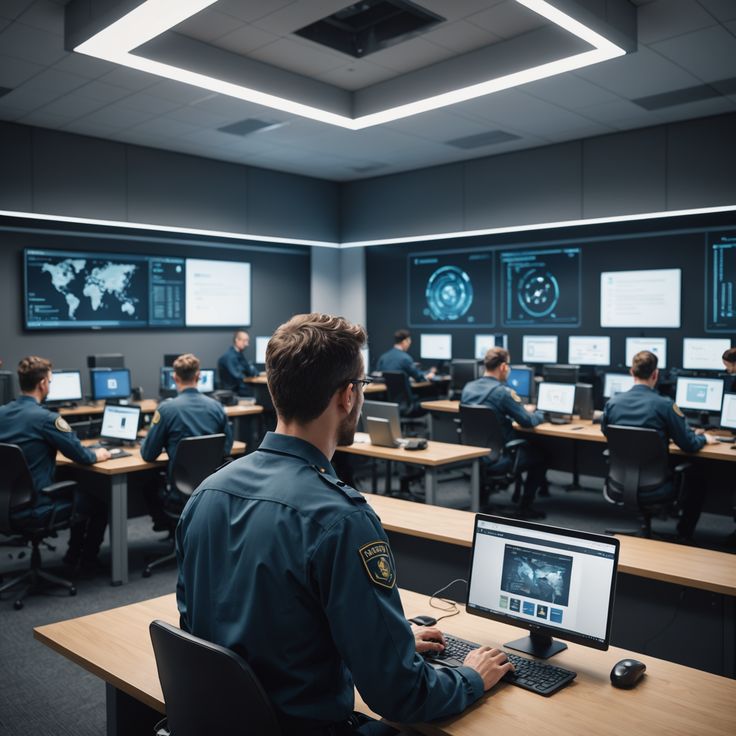business-services

July 19,2025 • 4 min read
Comprehensive Guide to a Security Guard Training Course

Introduction
In today's rapidly evolving security landscape, the role of a professional security guard is more critical than ever. From protecting property and assets to ensuring the safety of people in various environments, security personnel serve as the first line of defense. However, becoming a competent and effective security guard requires more than just a uniform and a keen eye—it demands thorough training, knowledge of legal standards, and hands-on experience. This is where a Security Guard Training Course plays a pivotal role.
What is a Security Guard Training Course?
A Security Guard Training Course is a structured educational program designed to equip aspiring security guards with the essential skills and knowledge needed to perform their duties effectively and legally. These courses are often mandated by local or national regulations and are a prerequisite for obtaining a security guard license or certification.
Depending on the region and the level of responsibility, training programs may vary in length and content. However, most share a core curriculum that covers the fundamentals of security operations, emergency response, legal powers, ethics, and customer service.
Key Components of the Training
1. Legal Authority and Responsibilities
One of the most critical areas of training involves understanding the legal powers and limitations of a security guard. Trainees learn about:
-
The legal rights of security personnel
-
Arrest procedures
-
Use of force policies
-
Relevant criminal and civil laws
Understanding these topics helps security guards perform their roles within the bounds of the law and avoid legal liabilities.
2. Observation and Reporting Skills
Security guards must be highly observant and capable of noticing unusual behavior or potential threats. Training in this area focuses on:
-
Surveillance techniques
-
Writing accurate and detailed incident reports
-
Proper communication with law enforcement and emergency services
These skills ensure that guards can effectively document and communicate incidents when they occur.
3. Emergency Procedures and First Aid
A good security guard is also trained to handle emergencies calmly and efficiently. Courses typically include:
-
Fire safety and evacuation procedures
-
Responding to medical emergencies
-
Basic first aid and CPR
-
Handling bomb threats and hazardous materials
This training enables guards to take immediate action that can save lives and reduce damage during critical situations.
4. Conflict Resolution and Communication
Dealing with the public is a significant part of a security guard's job. As such, trainees are taught:
-
De-escalation techniques
-
Verbal and non-verbal communication skills
-
Managing aggressive or non-compliant individuals
Effective communication not only diffuses tense situations but also projects professionalism and authority.
5. Physical Security Measures
This part of the course focuses on understanding and implementing security systems and procedures, including:
-
Access control systems
-
CCTV monitoring
-
Alarm systems
-
Patrolling techniques
By learning how to use and monitor security technologies, guards can better protect facilities and personnel.
Types of Training Formats
Security guard training courses are available in various formats to accommodate different learning preferences and schedules. These include:
-
Classroom-based instruction – Ideal for hands-on learning and group discussions.
-
Online training programs – Suitable for those needing flexible schedules.
-
Hybrid courses – Combine online theory with in-person practical training.
In many jurisdictions, passing an examination at the end of the course is required to receive a certification or license.
Importance of Ongoing Training
Initial training is just the beginning. The best security professionals engage in ongoing education and refresher courses to stay updated on legal changes, new technologies, and best practices. Some employers also provide specialized training in areas like cyber security, executive protection, or crowd control, depending on the assignment.
Career Opportunities After Training
Completing a security guard training course opens the door to various career paths, including:
-
Corporate security
-
Event security
-
Hospital and healthcare security
-
Retail loss prevention
-
Government and military facility protection
As security concerns continue to rise across industries, demand for trained and licensed security personnel is expected to grow steadily.
Conclusion
A Security Guard Training Course is more than just a requirement—it's the foundation of a successful and responsible security career. With a solid understanding of the law, refined communication skills, and the ability to respond effectively in emergencies, trained security guards play a vital role in maintaining safety and order across countless settings. For those seeking a stable, rewarding, and impactful profession, enrolling in a recognized training course is the first step toward becoming a trusted guardian in today’s security-focused world.
bsacenter Details
User Profile
- Full name
- bsacenter
- Email address
- dansifarar@gmail.com
- Join Date
- 2025-07-19
- State
- City
- Pincode
- Address
- Follow us on Facebook
- Follow us on Twitter
- Website Name
- Bio